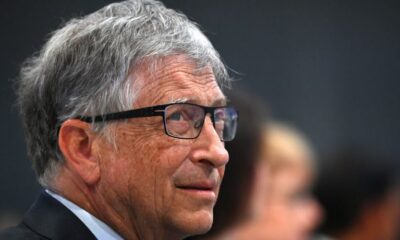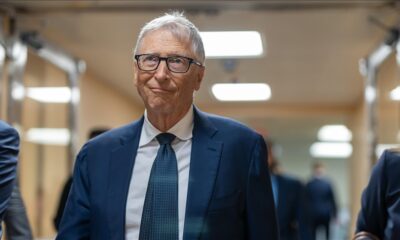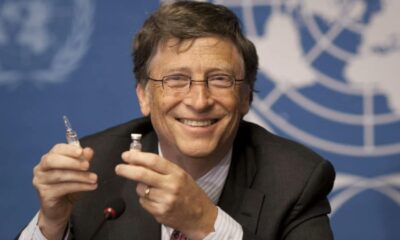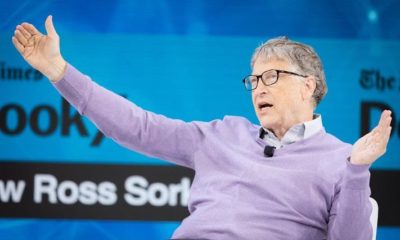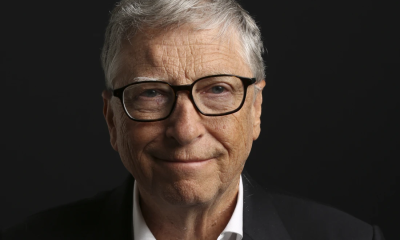Americas
American Billionaire Steps In as Trump Slashes US Aid to Kenya’s Health Sector

Key Facts:
– The Susan Thompson Buffett Foundation has granted Sh3.8 billion to Kenya’s health sector
– The grant represents 18.1% of Kenya’s medical services project budget
– Kenya faces a Sh24.9 billion funding gap due to US aid cuts
– Warren Buffett plans to donate 99.5% of his $161 billion fortune to charity
In a significant development for Kenya’s struggling health sector, billionaire investor Warren Buffett’s charitable foundation has announced a Sh3.8 billion ($30 million) grant to the country’s public health department, helping to ease the financial strain caused by recent US aid cuts under President Donald Trump’s administration.
The Treasury’s budget estimates for the fiscal year starting July reveal that the Susan Thompson Buffett Foundation will, for the first time, directly finance the Kenyan government through the State Department of Medical Services.
This timely intervention comes as Kenya grapples with a major funding gap following the Trump administration’s decision to drastically reduce foreign aid programs.
The grant represents 18.1 percent of the Sh20.93 billion allocated for projects under Kenya’s State Department for Medical Services in the upcoming fiscal year, making the Buffett Foundation the third-largest multilateral donor to Kenya behind the World Bank and Global Fund.
Kenya’s Ministry of Health had previously stated it needed approximately Sh24.9 billion to replace funding lost from US government sources, including an immediate Sh2 billion to address critical gaps in healthcare services.
“This contribution couldn’t have come at a more crucial time,” said a senior health official.
“With the freeze on US aid threatening essential health services across the country, private philanthropy is becoming increasingly vital.”
Trump’s Aid Cuts Create Regional Health Crisis
Hours after his January 2025 inauguration, President Trump ordered a comprehensive review of US foreign aid programs and tasked billionaire Elon Musk with scaling down the United States Agency for International Development (USAid), which Musk has publicly criticized as a “criminal” organization.
The subsequent aid cuts have severely impacted health programs throughout Africa.
The World Health Organization has warned that eight countries—six in Africa, including Kenya—could soon deplete their HIV drug supplies due to the pause in US assistance.
The crisis extends beyond HIV treatment, affecting vaccine procurement through the Global Alliance Vaccine Initiative (GAVI) and environmental conservation efforts.
Buffett’s Quiet Intervention
At 94, Warren Buffett, the world’s sixth-richest person according to Bloomberg’s Billionaires Index, has stepped in where government support has retreated.
The Susan Thompson Buffett Foundation, named after his late first wife and managed by his children, typically supports reproductive health initiatives, including access to contraception and safe abortion services.
This direct funding to Kenya’s government marks a shift in approach for the foundation, which has historically channeled support through non-governmental organizations.
Buffett, who recently announced his retirement as CEO of Berkshire Hathaway, has been a vocal critic of President Trump’s economic policies.
During a recent shareholder meeting, he criticized Trump’s approach to tariffs, stating they “can be an act of war” and that “trade should not be a weapon.”
While the Buffett Foundation’s contribution provides critical relief, it addresses only about 15 percent of Kenya’s funding shortfall from US aid cuts.
Other private organizations and philanthropists are also stepping in, with GAVI committing a Sh2.6 billion grant to the State Department for Medical Services.
USAid has promised a smaller grant of Sh231.56 million directly to the department, though this represents a fraction of its previous support.
Last year, USAid allocated Sh19.2 billion to various Kenyan programs, already down from Sh32.4 billion the year before.
As international aid dynamics shift under the Trump administration, Kenya and other African nations face the challenge of diversifying their funding sources for essential public services.
Private philanthropy, while helpful, raises questions about the sustainability and predictability of health financing in developing nations when subject to the changing priorities of wealthy individuals and organizations.
Buffett has pledged to donate 99.5 percent of his wealth—currently valued at more than $161 billion (Sh20.8 trillion)—to charitable causes upon his death, with most going to a trust overseen by his children rather than the Gates Foundation, which had previously been his primary philanthropic vehicle.
For now, Kenyan officials welcome the support, which provides a lifeline for essential health services while the government works to develop more sustainable funding solutions.
Kenya Insights allows guest blogging, if you want to be published on Kenya’s most authoritative and accurate blog, have an expose, news TIPS, story angles, human interest stories, drop us an email on [email protected] or via Telegram
-

 Grapevine2 weeks ago
Grapevine2 weeks agoRussian Man’s Secret Sex Recordings Ignite Fury as Questions Mount Over Consent and Easy Pick-Ups in Nairobi
-

 News1 week ago
News1 week agoTHE FIRM IN THE DOCK: How Kaplan and Stratton Became the Most Scrutinised Law Firm in Kenya
-

 Investigations1 week ago
Investigations1 week agoMulti-Million Dollar Fraud: Three Kenyans Face US Extradition in Massive Cybercrime Conspiracy
-

 Economy1 week ago
Economy1 week agoIran Demands Arrest, Prosecution Of Kenya’s Cup of Joe Director Director Over Sh2.6 Billion Tea Fraud
-

 Business1 week ago
Business1 week agoA Farm in Kenya’s Rift Valley Ignites a National Reckoning With Israeli Investment
-

 Africa2 weeks ago
Africa2 weeks agoFBI Investigates Congresswoman Ilhan Omar’s Husband’s Sh3.8 Billion Businesses in Kenya, Somalia and Dubai
-

 Grapevine4 days ago
Grapevine4 days agoA UN Director Based in Nairobi Was Deep in an Intimate Friendship With Epstein — He Even Sent Her a Sex Toy
-

 Politics2 weeks ago
Politics2 weeks agoSifuna, Babu Owino Are Uhuru’s Project, Orengo Is Opportunist, Inconsequential in Kenyan Politics, Miguna Says

